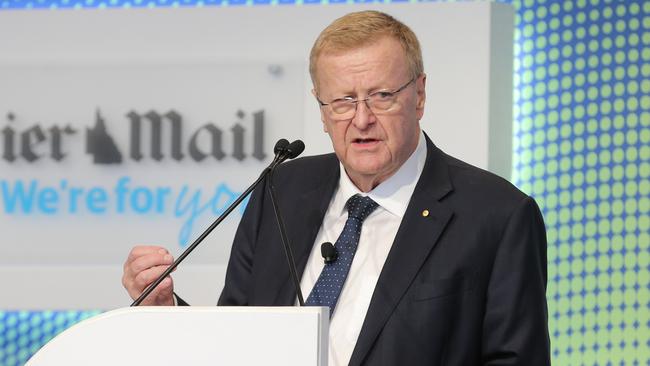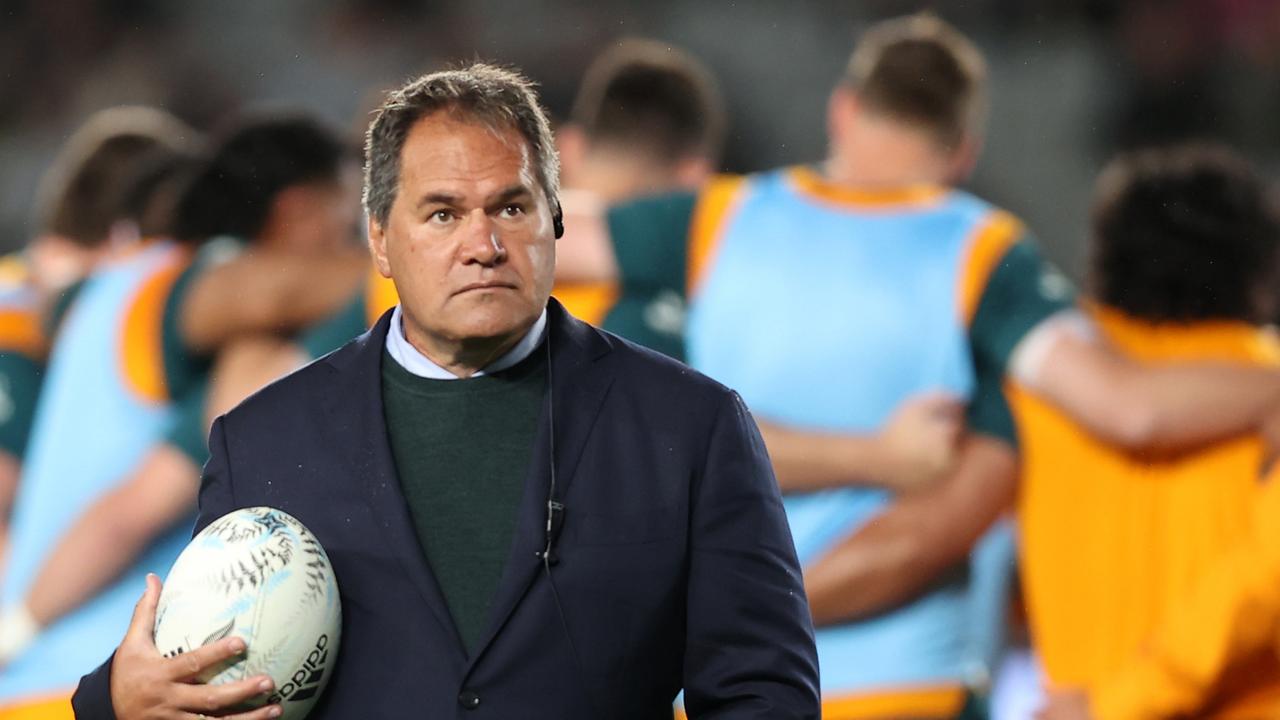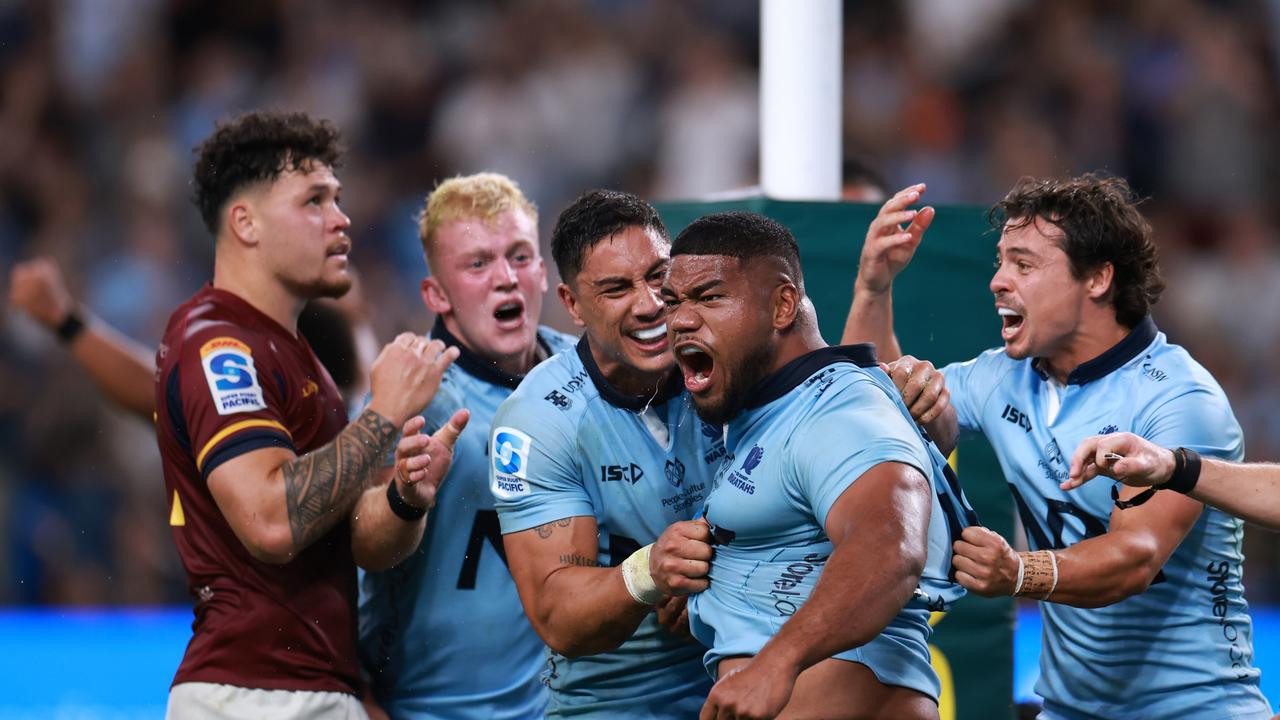Why rugby should not be for sale

One comment from last week’s column is more than relevant. Nancy writes: “I would happily pay $100pa to be a RA member with rights to vote for directors and priority for decent seats at Test matches. I suspect there would be another 100,000 people who would do the same, which equals $10 million pa. There would be no need for the corporate sponsor that ended in the debacle we have seen and the best seats at Test matches would actually be filled by supporters, rather than the zero-atmosphere corporate junket crowd.”
Consider that initiative, which I have been advocating for months, against what has happened this week in the world of soccer, shaken up by the prospect of a European Super League, while World Rugby has been in negotiations with private equity suitors to sell the commercial rights to the Rugby World Cup.
What does this mean for rugby and, in particular, Australian rugby?
Private equity groups have only one motive, “return on investment”. JP Morgan, the outfit bankrolling soccer’s European Super League, was prepared to pay all the big “super clubs” $500 million up front.
That’s almost five times what the winners of soccer’s Champions League would earn for winning that prestigious tournament.
With every game in the Super league format being a blockbuster, the broadcast rights would be off the charts and JP Morgan, along with the super clubs, would make a killing.
Remember, investors like JP Morgan, CVC and Silver Lake are only interested in making a big return on their investment.
Imagine if World Rugby sell their commercial rights for the Rugby World Cup to CVC, which, I might add, is looking very likely.
CVC, or any other private equity group, will obviously pay World Rugby a lot of money for these rights. The last World Cup in Japan saw World Rugby bank $650 million. That would be the starting price for the private equity bidders.
Should CVC offer that sort of money, or more, how would they secure a return on their investment?
Well, firstly, CVC would want to put the Rugby World Cup behind a pay wall.
CVC recently bought a 15 per cent share of the Six Nations for $650 million.
What happened? Well, no longer can people watch the world’s oldest international rugby championship free on the BBC, and that can’t be a good thing for the game in Europe.
Secondly, CVC would want to dictate who hosts the Rugby World Cup because some prospective host countries would be more lucrative than others.
Countries such as South Africa, in the European time zone, would have a huge advantage over countries such as Australia.
The fact that World Rugby are considering private equity offers, before they confirm the 2027 host nation, is not good news for Rugby Australia, who are launching their bid to host the Rugby World Cup on May 20.
I don’t believe an Australian World Cup would be supported by CVC. They would prefer South Africa or Russia because the TV broadcast revenues would be better in the European time zone.
South Africa narrowly missed out on the 2023 World Cup and Vladimir Putin is very keen to host the 2027 event.
Only months ago, Rugby Australia looked certain to be the 2027 hosts, but with the news that CVC, and other private equity partners, are courting World Rugby, I believe our bid is in strife.
Thirdly, CVC would want to reduce the number of countries invited to the Rugby World Cup to ensure each World Cup match would be a showstopper. They would favour the JP Morgan model for the proposed European Super League – fewer teams and more big games.
At the last World Cup, there were 20 teams spread over five pools. Clearly, some of the games were not great contests, nothing to watch.
I would expect all the bottom teams in each pool to be kicked out of the tournament. So, from 20 teams, it could be that CVC push for 16 teams or fewer.
The format might even resemble that of the recently proposed Nations Cup, where the best 12 teams would compete in a World Cup that only featured big crowd-pulling matches.
While that might be a good thing in the short term, the long-term consequences of kicking out teams such as Canada would be a setback for rugby in such countries. Not good for the game.
The Rugby Australia heavyweight bid team includes the chair, Sir Rod Eddington, former prime minister John Howard, former governor-general Peter Cosgrove and International Olympic Committee vice-president John Coates, an impressive line-up.
But they will have their work cut out to land the 2027 World Cup in Australia.
If World Rugby sell the commercial rights, their investment partners will want to control who is the host nation and the number of teams.
Private equity cash injections may be the answer for our game’s short-term administrative financial failures. However, the cost of doing business with private equity is highly likely to negatively impact the fabric of our game in the long term.
To be completely honest, if rugby’s administrators, the political elite, did their jobs properly, we wouldn’t need private equity partners.
The All Blacks should be commended for recently opposing a private equity buyout by Silver Lake. Their players have drawn a line in the sand to protect the game in New Zealand.
It’s unfortunate that rugby players around the world will have no say in the matter, as World Rugby looks to sell the commercial rights to the World Cup.
The decision will now be up to Bill Beaumont and Bernard La Porte. They are the powerbrokers running the world game today.
I have no doubt Agustín Pichot would have fought against private equity had he been elected chairman of World Rugby last year. But Pichot was outmanoeuvred by some questionable pork-barrelling from team Beaumont.
Beaumont and La Porte are already in bed with CVC as a result of CVC’s recent Six Nations investment. Beaumont represents England; La Porte represents France.
We can only imagine their decision-making in World Rugby matters would be based on what’s best for their respective nations, forget what’s best for the rest of the world.
It’s no wonder super clubs in soccer and rugby consider sidestepping their respective governing bodies and forming their own competitions.
In general, the administration of most football codes is appalling.
That’s the reason private equity is circling and so-called super clubs are losing their patience.
Most sports administrators are simply not good enough. If they were any good, there would be no need for private equity investors or breakaway competitions.


